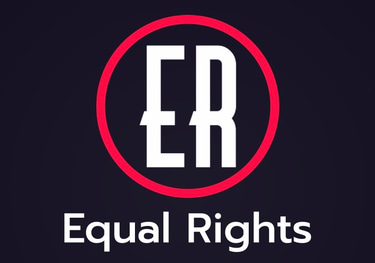Intersectionality refers to the interconnected nature of social categorizations
such as race, gender, sexual orientation, disability, and other dimensions of identity.
Kylo B
6/7/2024
Intersectionality refers to the interconnected nature of social categorizations such as race, gender, sexual orientation, disability, and other dimensions of identity.
Systemic racism intersects with various forms of discrimination, amplifying the challenges faced by individuals with intersecting marginalized identities and creating compounded barriers to social inclusion and equity.
Complex Intersections of Discrimination
Individuals who belong to marginalized groups often experience intersecting forms of discrimination that result from the combined effects of systemic racism along with other forms of oppression:
Racial & Gender Discrimination: Black women, Indigenous women, and women of color face unique challenges due to intersecting experiences of racism and sexism. They often encounter disparities in employment, healthcare, and education, and are disproportionately affected by gender-based violence and economic inequities.
Racial & LGBTQ+ Discrimination: LGBTQ+ individuals of color experience heightened discrimination due to intersecting identities. They may face barriers to accessing healthcare services, encounter workplace discrimination, and be at greater risk of experiencing violence based on both race and sexual orientation or gender identity.
Racial & Disability Discrimination: Individuals with disabilities from racial minority backgrounds experience compounded discrimination, including barriers to accessing accommodations, employment opportunities, and healthcare services. They often face increased risks of poverty, social exclusion, and systemic neglect.
Compounded Barriers & Invisibility
Intersectionality highlights the unique experiences and challenges faced by individuals at the intersections of multiple marginalized identities.
These compounded barriers can lead to invisibility within social justice movements and public discourse, as mainstream narratives often fail to fully acknowledge or address the complexities of intersecting oppressions.
Advancing Intersectional Approaches
Addressing intersectionality requires adopting inclusive and intersectional approaches to advocacy, policy-making, and social change:
Centering Marginalized Voices: Amplifying the voices and leadership of individuals with intersecting marginalized identities in decision-making processes and advocacy efforts.
Collaborative Advocacy: Building coalitions and alliances across diverse social justice movements to address intersecting forms of discrimination and promote solidarity among marginalized communities.
Policy Reforms: Implementing intersectional policies that consider the unique needs and experiences of individuals with intersecting marginalized identities, ensuring equitable access to resources and opportunities.
Intersectionality underscores the complex and interconnected nature of discrimination, highlighting the importance of addressing systemic racism in conjunction with other forms of oppression.
By adopting intersectional approaches to social justice advocacy and policy-making, we can work toward dismantling intersecting barriers and advancing inclusivity, equity, and justice for all individuals with intersecting marginalized identities.
